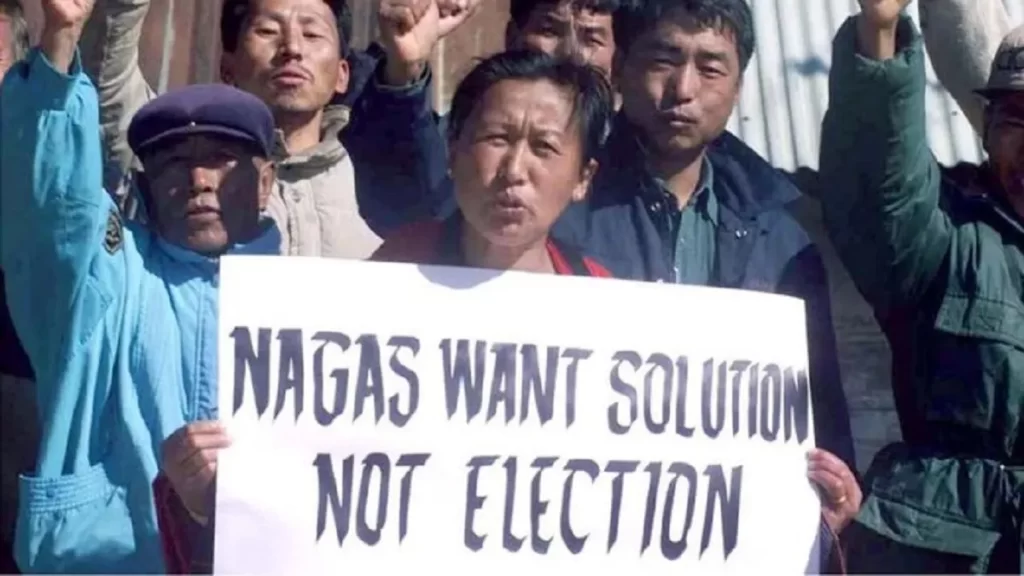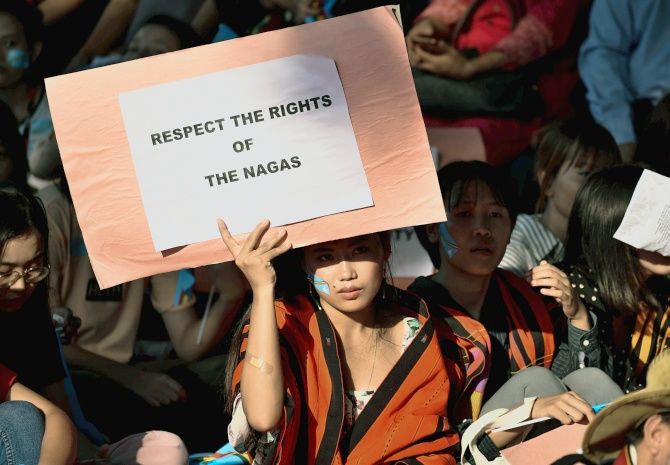In a significant development in the Naga peace process, the working committee (WC) of the Naga National Political Groups (NNPGs) has labeled the NSCN-IM as an “anti-solution group.” The NNPGs allege that the NSCN-IM, by introducing the demands for a separate Naga flag and constitution, has deviated from the original talks that commenced decades ago.
Original Naga Peace Talks Omitted Flag and Constitution, Claims NNPGs
The NNPGs assert that the demands for a separate Naga flag and constitution were not part of the initial discussions held over the past 22 years. According to the NNPGs, the government of India (GoI) officially concluded talks with negotiating Naga groups, including the NSCN-IM, on October 31, 2019. The NNPGs emphasize that the “Agreed Position,” reached after two years of dedicated political discussions, defined the future relationship between the GoI and the Nagas.
The NNPGs express disappointment over the apparent deviation from the agreed-upon path, alleging that there is a deliberate attempt to hinder the realization of a just and honorable political solution for the Naga people. They question the NSCN-IM’s shift in stance and brand it as an “anti-solution group.”

NSCN-IM’s Unwillingness to Accept Achievements of NNPGs Criticized
The NNPGs accuse the NSCN-IM leadership of being unable to accept the accomplishments of the WC-NNPG. They claim that the NNPGs, in collaboration with Naga civil societies, successfully achieved in two years what the NSCN-IM failed to accomplish over two decades. The NNPGs underline that the NSCN-IM does not possess sovereign power to share with the GoI, and the sharing of sovereign powers implies an acknowledgment of the Indian constitution.
While the NSCN-IM continues its struggle, the NNPGs urge the rest of the Naga people to embrace what is practical, acceptable, and honorable at the present moment. They emphasize that the nature of the political agreement will determine how the GoI honors Naga symbols such as the flag and constitution.
The NNPGs highlight the lengthy Indo-Naga conflict spanning more than eighty years, clarifying that the political negotiations did not initially focus on achieving a separate flag or constitution. They assert that the political agreement’s nature will dictate how the GoI acknowledges Naga rights and symbolic elements.


